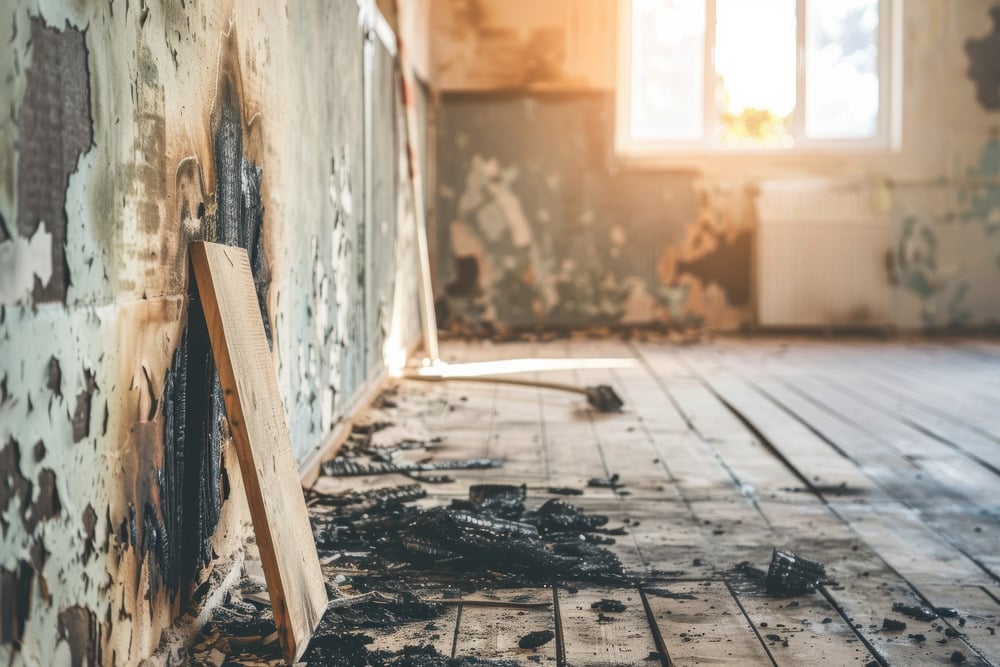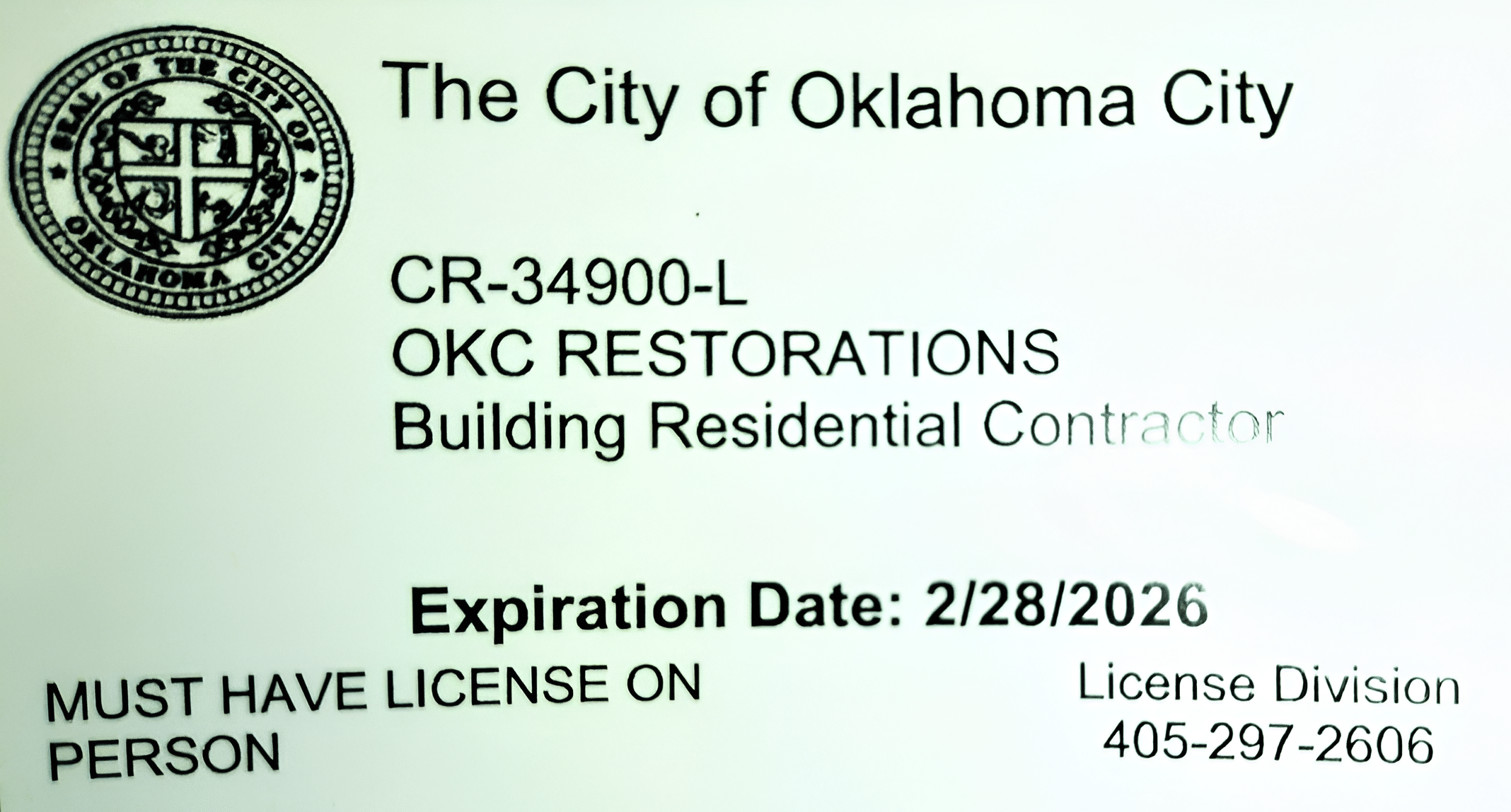
When a fire occurs in your home, the visible damage is only part of the problem you’ll face. A persistent smoke smell can be overwhelming and difficult to eliminate, creating ongoing discomfort long after the flames are extinguished. This invisible reminder affects your living environment and potentially your health. Lingering smoke smells often need to be addressed by a professional, but there are some methods you can try on your own. With the proper methods and patience, you’ll be able to restore freshness to your space and put the experience behind you. In this article, we’ll talk about how to get rid of the smoke smell after a fire and help you establish a healthy home environment again.
Understanding Smoke Odors and Their Causes
Fire damage presents many challenges, but the lingering smell is generally most troublesome. Smoke particles are small invaders that travel beyond the fire area, infiltrating clothing, walls, and hidden spaces throughout your property. Unlike other common household odors, smoke smells persist long after the fire is out. Each type of fire has a distinctive smoke signature:
- Dry Smoke: Caused by fast-burning, high-temperature fires involving wood and paper, leaving behind a fine powder.
- Wet Smoke: Slow, low-heat fires involving plastic and rubber materials that leave behind a sticky, greasy residue with a strong odor that smears during cleaning.
- Protein Smoke: Occurs when food or organic matters burn, producing nearly invisible residue with a strong odor that discolors painted surfaces.
- Fuel Smoke: Results from burning petroleum products, giving rise to thick, oily deposits that damage surfaces and emit strong petroleum odors.
What Causes Smoke Odors?
Smoke odor lingers in homes long after a fire because of how smoke interacts with building materials and belongings. The problem goes much deeper than surface dirt, making regular cleaning insufficient. These are the main reasons why smoke odors persist:
- Soot and Ash: These carbon particles can penetrate the pores in fabrics, wood grain, and wall materials.
- VOCs: Fires release volatile organic compounds that settle on surfaces and gradually evaporate over time. These chemicals cause the characteristic smoke smell and continue to be released for weeks or months.
- Material Absorption: Soft furniture, carpets, and curtains contain countless tiny pores that trap smoke particles. The more porous an item is, the more deeply smoke penetrates and the harder it becomes to remove.
- HVAC Spread: During a fire, your heating and cooling system becomes contaminated and can redistribute smoke particles even after you have cleaned visible surfaces.
Health Risks of Lingering Smoke Odors
Smoke particles are so small that they can penetrate your body’s natural defenses when you breathe them in. They carry harmful chemicals that can enter your bloodstream and affect multiple systems in your body. Invisible smoke residue can lead to long-term health complications.
Here are the health risks you should watch out for:
- Eye, nose, and throat irritation
- Heart attacks
- Headaches and dizziness
- Strokes
- Worsened asthma symptoms
- Progressive lung disease
- Chronic coughing
How to Get Rid of a Smoke Smell After a Fire?
Getting rid of the smoke smell after a fire in your home all comes down to timing and strategy. You’ll need to take quick action using proven deodorization methods to restore your indoor air quality. Follow these steps to eliminate smoke odors completely:
Immediate Steps to Minimize Smoke Odors
Acting fast after a fire helps prevent smoke odors from settling deep into your home’s surfaces. The sooner you start ventilating and cleaning, the easier it will be to eliminate lingering odors. Here are the steps to start with:
-
Ventilation and airflow improvement
Good airflow is your greatest defense against persistent smoke odors in your home. Open all the doors and windows in the affected rooms. If it’s cold outside, open the windows slightly to allow air exchange without losing too much heat. You can even place fans near the exits to push smoky air outside while drawing fresh air through other openings to ensure continuous airflow so smoke particles cannot settle.
-
Remove soot and ash promptly
Removing soot quickly prevents it from creating permanent stains or odors. Always wear rubber gloves when you are cleaning to protect your skin. Wipe down the walls and floors with a soft sponge or cloth, cleaning in small sections from the bottom up to avoid streaking. Immediately rinse each area with clean water and dry it completely to avoid moisture damage to your walls or floors.
-
Dispose of irreparable items
Some items simply can’t be cleaned effectively and will continue causing smoke odors if they are kept in your home. Food, medicine, and cosmetics that are exposed to smoke should be thrown away since they become unsafe for use. Heavily damaged textiles like carpets, curtains, and upholstered furniture absorb smoke so deeply that cleaning becomes impossible. Similarly, electrical appliances need professional inspection before use, as fire and smoke can damage the components inside and pose safety risks. You can remove the smell of smoke after a fire by disposing of contaminated items that would otherwise continue reintroducing odors into your restored areas.
Cleaning The Affected Areas
After you take immediate action, the next phase involves systematically cleaning all the surfaces that smoke has touched. Every exposed room needs thorough attention since smoke particles settle everywhere, including inaccessible areas. Start by emptying all your closets, cabinets, and drawers so that you can use mild detergent solutions to clean interior surfaces. Don’t forget to clean light fixtures by washing off removable lampshades and wiping bulbs, replacing any that smell smoky.
Deep Cleaning Methods for Smoke Odor Removal
You may need advanced methods to reach hidden smoke particles that standard methods don’t touch. Here are some deep cleaning methods for removing smoke odors after a fire:
-
Cleaning walls, ceilings, and floors
Start with water and a mild cleanser to clean all hard surfaces, including door frames, floors, baseboards, and painted walls. Clean quickly because acidic soot will stain or ruin surfaces permanently within hours if not addressed. Use gentle pressure when applying cleaning solutions and rinse instantly with clean water to prevent cleaning product buildup. You should focus on areas near the fire source where soot concentration is typically heaviest.
-
Cleaning furniture and upholstery
Use a vacuum with a HEPA filter and brush attachments to remove surface particles without pushing them deeper into fabric fibers. Avoid upright vacuums with rotating brushes since these can embed soot further into upholstery materials. For heavily contaminated pieces, professional cleaning services have equipment and expertise that DIY methods cannot match.
-
Washing clothes, curtains, and linens
Sort textiles by fabric type and level of contamination before commencing any cleaning activity. Use high-quality detergent with deodorizing additives for machine-washable items. For delicate fabrics, send them to professional dry cleaners.
-
Cleaning HVAC systems and ducts
Your heating and cooling system can spread smoke particles throughout your home if you don’t clean it. Professional duct cleaning removes trapped particles from all your ducts, vents, and other components of your HVAC system that you can’t reach yourself. Replace all air filters immediately when you return home and continue monthly replacements for a year afterward.
Natural Odor Neutralization Techniques
While deep cleaning removes visible contamination, natural deodorization methods provide ongoing odor absorption without applying harsh chemicals. Below are proven natural methods to remove smoke odors after a fire:
-
Baking soda
Baking soda naturally absorbs odors by eliminating the acidic chemicals found in smoke residue. Place open bowls of fresh baking soda in each fire-affected area, changing them every three days as they absorb odors. Sprinkle it generously on carpets and upholstery, let it sit for several hours, then vacuum thoroughly to remove the powder and trapped odors.
-
Activated charcoal
Activated charcoal traps smoke particles and odor molecules. Position bowls of activated charcoal in rooms where the odors are strongest, focusing on areas closest to the fire source. This natural absorption method works continuously without electricity or maintenance and is perfect for repeated long-term odor control.
-
White vinegar
White vinegar breaks down smoke residue through its natural acidity and dissipates odors at the molecular level. Use equal parts vinegar and water for surface cleaning. You can gently heat vinegar in your kitchen to diffuse its vapors more widely through larger spaces, but you should ensure good ventilation during this process.
-
Lemon and citrus
Citrus peels release natural oils that eliminate smoke smells without leaving unpleasant, harsh fragrances. Boil orange or lemon peels in water to release intense essential oils throughout your home. Placing fresh or dried citrus peels in small bowls around affected rooms gives longer-lasting natural deodorization.
Air Purification and Deodorization
When natural methods and cleaning aren’t enough, professional air purification is the most effective solution for smoke odor elimination. Advanced purification solutions involve HEPA filtration and ozone to sanitize indoor air. Air scrubbers continuously collect contaminated particles while introducing clean, filtered air into your living spaces. Professional deodorization ensures complete remediation until no sign of soot contamination is present.
Professional Smoke Odor Removal Solutions
You need professional smoke odor removal when basic cleaning fails to get rid of the smoky smell in your home. This usually happens after house fires or when smoke has been building up over time from sources like cooking or cigarettes. If the odor affects your daily comfort or health, professional help becomes essential. Fire restoration experts have special tools and methods that work much better than any DIY solutions.
Here’s why hiring professionals for smoke odor removal makes sense:
- They have powerful machines that can pull smoke particles out of hard-to-reach places.
- Trained experts understand how to handle different surfaces without causing damage.
- Special treatments get rid of the smell permanently rather than just hiding it temporarily.
- Your home becomes healthier when all the smoke contamination is removed properly.
- Professional work stops the damage from spreading to other areas of your house.
Contact OKC Restorations to Remove Smoke Smells After a Fire
Removing smoke odors requires more than just cleaning what you can see because the real damage happens in places you cannot reach. While you can try natural solutions like baking soda and vinegar, you may need professional help for complete odor removal and structural repairs. OKC Restorations has the right tools and experience to completely remove both soot buildup and smoke odors from your property. Reach out to us today for a free estimate, and let us help you get your home back to normal.




